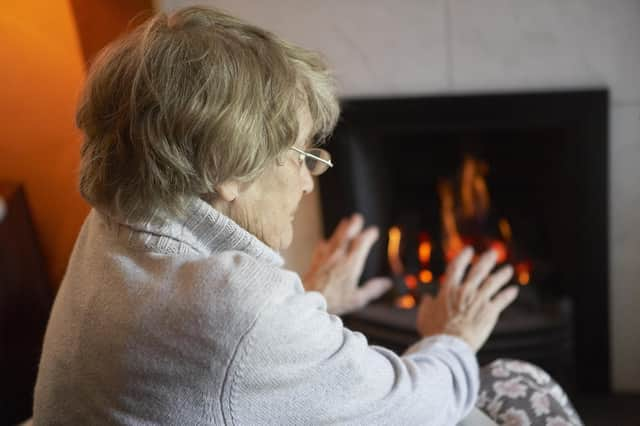Concern as ‘winter deaths’ crisis hits North Yorkshire


The latest data from the Office for National Statistics shows there were 510 excess winter deaths in North Yorkshire between 2019 and 2020.
Advertisement
Hide AdAdvertisement
Hide AdExcess winter deaths are defined as the difference between the number of deaths recorded in the cold months (December to March) compared with the average number of deaths in the warmer four-month periods before (August to November) and after (April to July).
Living in cold temperatures can lead to high blood pressure and a weakened immune system, which puts older people in particular at greater risk of developing respiratory and cardiovascular disease alongside other seasonal illnesses.
Public Health England suggest that over one-fifth (22%) of excess deaths during winter are directly linked to cold homes.
Malcolm Farrow from OFTEC (Oil Firing Technical Association) - the leading trade association in the off-gas grid heating sector - said: “We must not forget that, even without the impact of Covid, thousands of people continue to die in avoidable circumstances because they live in a cold home.
Advertisement
Hide AdAdvertisement
Hide Ad"We know that many of those in North Yorkshire who are least able to afford their heating costs live in some of the most poorly insulated properties, making them much harder to heat and keep warm. The Government needs to take action and provide more support for fuel poor households to help tackle the excess winter death crisis we are facing.”
OFTEC says that in rural areas a disproportionate number of households live in fuel poverty, many of them vulnerable, adding further complexity to the problem.
In North Yorkshire, around 81,900 households are classed as fuel poor, which means their disposable income after energy costs puts them below the poverty line and their home has an energy efficiency (EPC) rating of band D or below.
The Excess Winter Mortality report from the Office for National Statistics shows that, across England and Wales as a whole, there were 29,290 excess deaths between December 2019 and March 2020, excluding Covid-related deaths.
Advertisement
Hide AdAdvertisement
Hide AdMr Farrow added: “Experts believe that people who are older, live with long term health conditions or have lower average income are most at risk of winter illness
or mortality.”
Comment Guidelines
National World encourages reader discussion on our stories. User feedback, insights and back-and-forth exchanges add a rich layer of context to reporting. Please review our Community Guidelines before commenting.